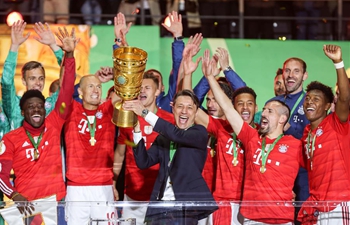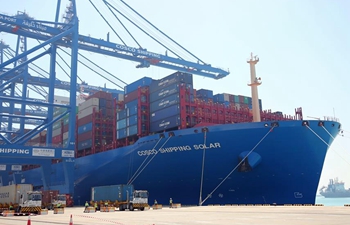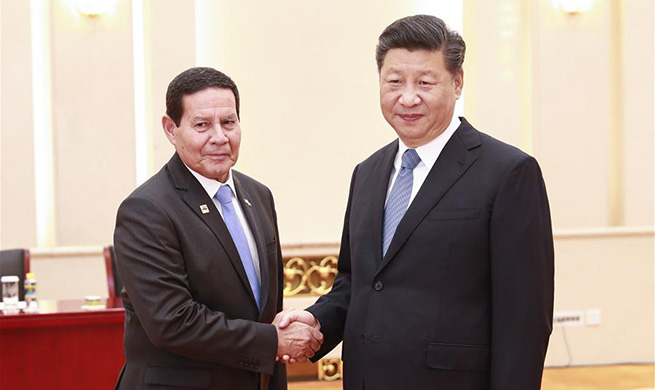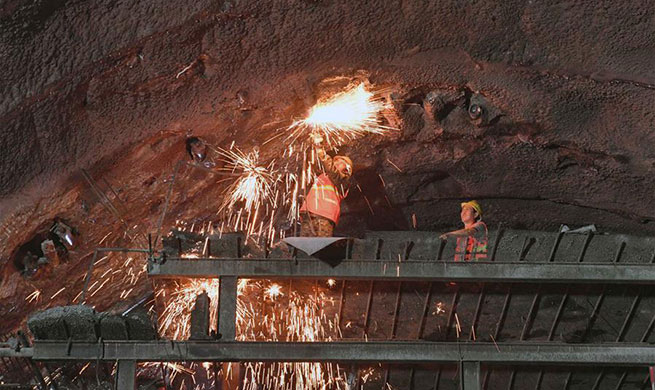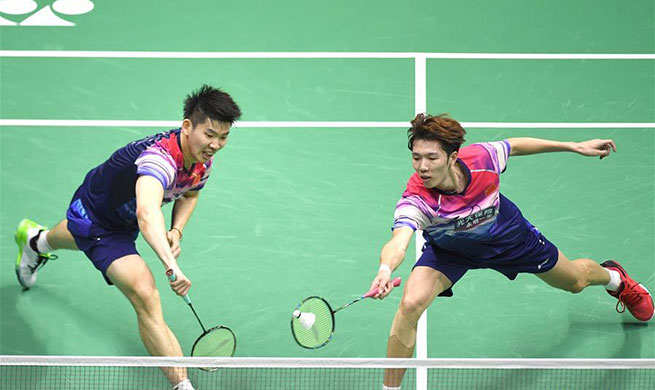BERLIN, May 26 (Xinhua) -- The largest economy of the European Union (EU) is voting for the bloc's legislature, as Germans are set to choose 96 Members of the European Parliament (MEPs) - the most in the EU - from 41 German parties.
The polling stations are open from 08:00 a.m. to 06:00 p.m. local time to some 65 million eligible voters.
UNCERTAINTIES
In Germany, the election takes place amidst deep uncertainty about the stability of the EU due to the Brexit saga and the spread of Eurosceptic sentiment.
A total of 58 percent of Germans were "rather dissatisfied" with how politics is conducted at the European level, while only 35 percent were "rather satisfied", according to a Politbarometer survey published on Friday.
Stella Marie Liderer, a 25-year-old student pursuing her master's degree, said "I'm very pro-European Union. Because I like to travel and open borders will be very important to me."
"I would like to vote, since every time I think of not voting that will mean the rightist sentiment getting more and more popular or Trump gaining ground in Europe," said Liderer, referring to U.S. President Donald Trump.
"I hope the outcome will be 'more Green' in the European Parliament, and there will be more regulations on the conservation of nature and environment," Liderer said.
A surge in support for Germany's Green Party is expected to lead to its winning of 17 percent of the votes, a big improvement from its around 10-percent share, according to the poll by Infratest Dimap.
A 37-year-old voter who only gave his name as Thomas and described he works in public relations, said "Personally, I do not expect much from the European elections or the European Parliament because already in Germany, the politicians usually do not keep the promises they made before an election. And in this context Europe is politically not within my grasp."
"Nevertheless, I am going to vote on Sunday because I know that it is important and it is also about preventing the right-wing parties from becoming too powerful," he added.
INCREASED INTEREST
The federal election authority said that 29 percent of registered voters had cast ballots by 2 p.m., four hours before polls close. That's up from 26 percent at the same time in 2014. That doesn't include postal votes.
The interest in the upcoming European elections was higher than ever before at 56 percent, according to a Politbarometer Extra survey published by German public broadcaster ZDF in May, ahead of Sunday's vote.
Ahead of the last European elections five years ago, only 38 percent of Germans said they were "interested" or "very interested" in the European elections.
"STRONGER EUROPE"
Amidst growing global economic turbulences, most German industry voices are calling for a stronger and more united Europe.
The elections "are a great opportunity for a reorientation of Europe," said Marcel Fratzscher, president of the German Institute for Economic Research (DIW).
The community of European states must continue to grow together in order to "stop divergence and polarization," said Fratzscher.
The German Federation of Industries and the Confederation of German Employers' Associations have also been calling for "more Europe" as they presented a plan entitled "10 goals for a strong Europe".
The two German industry associations' support for a strong Europe was clearly mirrored in their main message. The German industry "is clearly committed to Europe. Europe is not the cause, but the solution to many problems."
"The European Union is one of the strongest economies in the world. Europe is the home market for the German industry," said Dieter Kempf, president of the German Federation of Industries.
WEBER CONFIDENT
One of the most watched figures in this election is Manfred Weber, leader of the center-right European People's Party (EPP) group.
The German voiced his confidence on Sunday after casting his vote in the European Parliament elections.
"I am very confident to vote. (We have) good chances that my party EPP will become once again the strongest political group in the European Parliament, that is our election target," Weber said.
"I don't want to see a right-populist Europe (that) wants to destroy the idea of togetherness. I'm also against a Europe which is in the hands of the left," he said after voting.
EPP was voted to be the largest group in the last European Parliament elections in 2014, after which its lead candidate Jean-Claude Juncker went on to become the President of the European Commission.
This year, polls before the voting predicted that the EPP would remain the largest group of the European Parliament, potentially making Weber - its lead candidate this year - a top contender to succeed Juncker.

